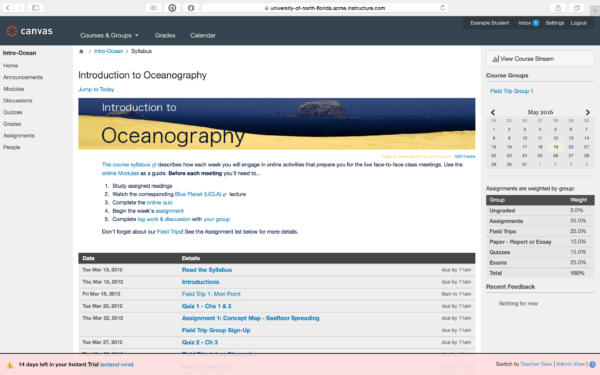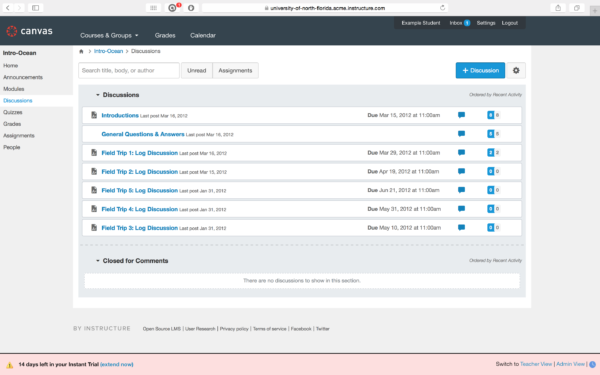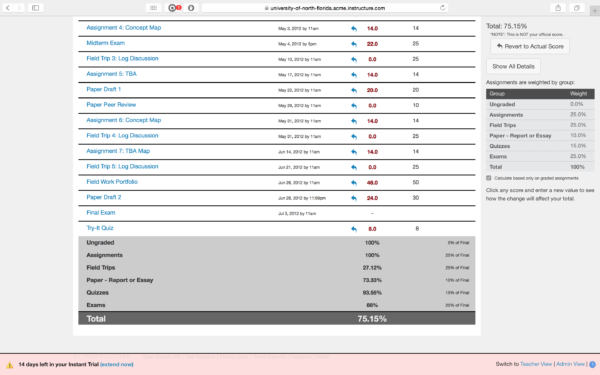The University of North Florida (UNF) is ditching Blackboard for a new online, educational platform called Canvas.
Spinnaker spent the last several weeks doing a trial run of the site to see how it stacks up against Blackboard, and learned a lot about oceanography along the way.
One visit to the Canvas website and it’s clear this is a West Coast tech start-up geared towards millennials. There are graphics everywhere, pictures of nature (Colorado, of course) contrasted by others of city skylines and quotes like, “Welcome to research nirvana!”

Both the University of Central Florida and University of Florida have made the switch to Canvas. Spinnaker spoke to several students at each school who claim Canvas is far less problematic than Blackboard.
“I’ve heard from (my sister) Blackboard goes down a lot and will refresh and delete your assignment. I’ve never had a problem like that with Canvas,” said Courtney Dorrian, a marketing junior at the University of Florida.
Most of the experiences Spinnaker had during our trial were very similar to using Blackboard. The layout had a cleaner, tighter look, but overall the content was the same. Canvas features a Google-style calendar and sections linking all the expected content – discussions, grades, modules, etc.

Canvas prides itself on unique user experiences and app integration. A course’s page, for example, can integrate programs such as Dropbox or WordPress so they became usable parts of the course. This means students and teachers can easily share files, videos and pictures in one spot – no email sharing required. There’s also an analytic tool to track grades, assignment completion and a few other things, but this feature is mostly geared towards teachers.
Perhaps the biggest flaw found was Canvas’ reliance on professors designing their course to utilize the available resources, which means the features available to students may not be used at all. Canvas has a wealth of resources, integrations, unique features, but the ability to utilize them can be completely eroded if the professor doesn’t take advantage them.
Though UNF may not be in for the “educational revolution” the Canvas website claims it will bring, expect a better-functioning website with a much lower crash-rate.

For most Ospreys, this change alone makes it worth switching, making the resources and features an added bonus for those who end up using them.
—
For more information or news tips, or if you see an error in this story or have any compliments or concerns, contact managingeditor@unfspinnaker.com.











